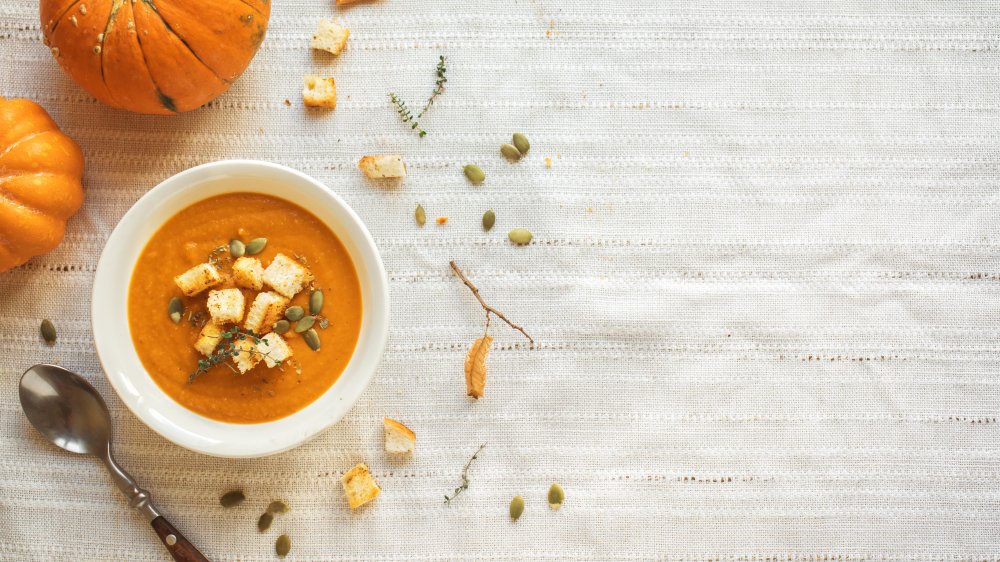The Reason Pumpkin Is Considered A Superfood
Superfoods are often touted as miracle-like cures for health issues, but in many cases, the facts don't really support the claims. Pumpkins, however, live up to their hype. They may not provide miracle cures, but they offer a myriad of health benefits.
"Superfood" is a trendy marketing term for foods that have high nutritional value, such as packing tons of vitamins and minerals (via LiveScience). Due to its health benefits, pumpkin is considered a superfood.
Think back on nutritional advice and you may remember that you should eat colorful vegetables. Pumpkin falls into this category. The orange color of pumpkins, much like another orange vegetable, carrots, comes from beta-carotene, and your body converts the beta-carotene into vitamin A, which is important for eye health. One cup of pumpkin makes up over 200 percent of the recommended daily intake of vitamin A. Beta-carotene also helps the skin, as it can hamper skin-damaging UV rays (via CareSpot).
Pumpkin is also an excellent source of vitamin C, which is important for strengthening the immune system and fighting infections as well as increasing collagen production. It also reduces oxidative stress, which can prevent premature aging. One cup of pumpkin makes up 19 percent of the recommended daily amount (via Well + Good). Vitamin C also increases white blood cell production and helps heal wounds faster (via Healthline).
Pumpkin provides beneficial minerals
Another benefit of pumpkin is that it's a great source of fiber, which is necessary for healthy digestion. Fiber also lowers cholesterol and leaves you feeling full longer. The recommended daily intake of fiber is 25 to 35 grams, and pumpkin provides a solid 7 grams per cup (via Well+Good).
A benefit of pumpkin that many will find surprising is that it helps with muscle recovery. Pumpkin contains magnesium, which is important for muscle regulation as well as the regulation of the nervous system, which makes it an ideal post-workout snack. One cup of pumpkin provides 14 percent of the daily recommended intake. Pumpkin seeds can provide an additional 37 percent of daily intake.
Pumpkin also provides an excellent source of potassium, a mineral your body needs for muscle contraction, digestion, and healthy blood pressure. Pumpkin has more than 500 milligrams of potassium per cup — surprisingly more than the banana, a fruit which is famous for its potassium benefits.
It is such a versatile food, you will have no trouble adding some pumpkin to your diet. There is pumpkin bread, pumpkin pie, pumpkin cookies, and pumpkin seeds to choose from, all of which will make a great snack. Pumpkin soup or pumpkin-filled pastas make great meals.

